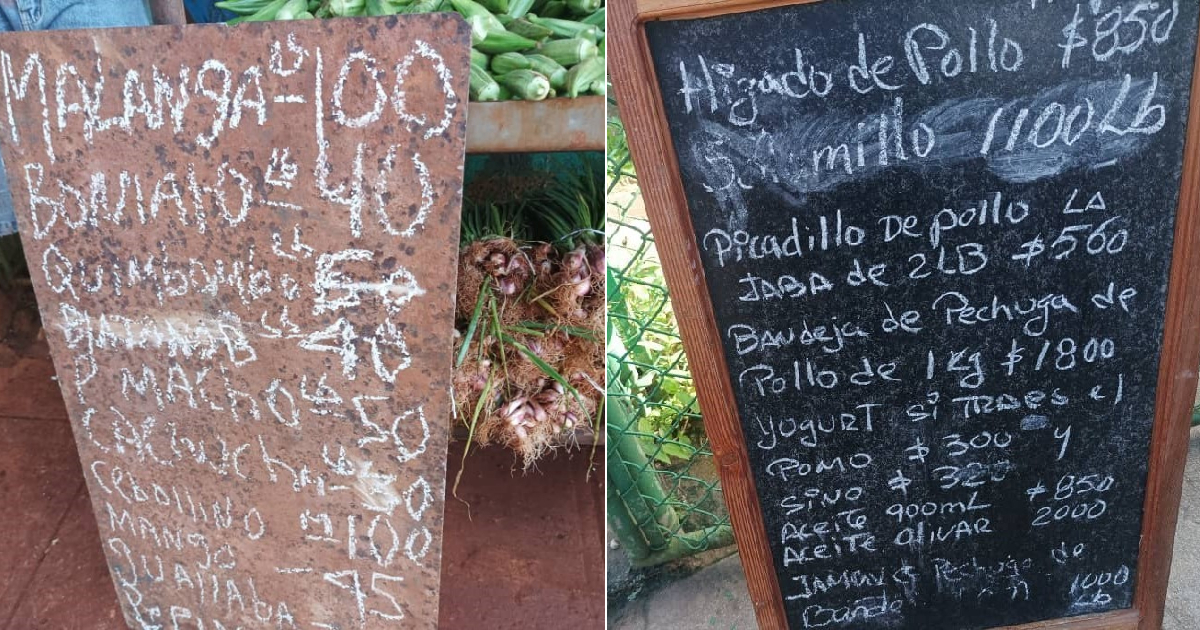The Provincial Government of Havana has shut down four private businesses for allegedly failing to comply with the "banking" regulations and forced merchants to carry out 77 compulsory sales of their products during a control operation conducted last week in the capital.
Officials from the Provincial Government's Inspection Directorate and the Ministry of Finance and Prices (MFP) carried out a "price control exercise" in all 15 municipalities of Havana last Friday and Saturday. The operation aimed to "protect the consumer as the main objective," according to a press release issued by the Citizen Portal of Havana.
During the inspection, multiple commercial entities in the Cuban capital were found to have "irregularities" in adhering to the pricing policy established by the MFP, including Resolution 225 approved last July, which capped the maximum retail prices of six high-demand basic products.
On Friday, the authorities conducted 294 inspections in private businesses and imposed 422 fines, 259 of which were for price violations. While the amounts of the fines were not disclosed, they can reach or even exceed 8,000 pesos as stipulated by Decree-Law 30 of 2021. Additionally, inspectors ordered vendors to sell their goods through compulsory sales, totaling 77 in all.
On the same day, government officials also closed down four establishments for "failing to comply with Resolution 93 on banking," although the specific infractions leading to these closures were not detailed. However, the MFP's social media posts reported the closure on Saturday of a sales point operated by a self-employed worker (TCP) in the Boyeros municipality for not paying taxes this year.
"In images, the sales point of a TCP who has not paid their taxes this year, leading to the closure of this project in the Boyeros municipality," read a post on X (formerly Twitter).
The statement on the Provincial Government of Havana's website reiterates the official rhetoric that "the fight against illegalities and abusive prices is a top priority," which has been strictly enforced across the country, especially since early July. Meanwhile, state-run stores in freely convertible currency (MLC) continue to maintain exorbitant prices, unaffordable for the vast majority of Cubans living on the island.
Government Crackdown on Price Violations Extends Beyond Havana
Over the weekend, the government's crackdown on private sector price violations also reached the agricultural fair in the Placetas municipality of Villa Clara, where all offenders were fined 8,000 pesos each, in line with Decree 30 of 2021. Besides the fines, compulsory sales were ordered, and in some cases, the goods were confiscated.
On Friday and Saturday, a similar operation took place in Santa Clara, where municipal government inspectors identified violations by 87 micro, small, and medium enterprises (MSMEs) and self-employed workers out of 95 inspected. The report specified that 24 fines of 8,000 pesos were imposed for abusive pricing, 17 of which were for violations of Resolution 225/2024 of the MFP.
Under this regulation, the government set retail prices for cut chicken, edible oils (except olive oil), powdered milk, pasta, sausages, and powdered detergent. Since its implementation in early July, the authorities have intensified control operations nationwide to detect price violations in the non-state sector and penalize offenders.
FAQs on Havana's Business Closures and Price Controls
The following questions and answers provide additional information on the recent actions taken by the Havana government against private businesses and price violations.
What prompted the closure of the four private businesses in Havana?
The businesses were closed for allegedly failing to comply with banking regulations, specifically Resolution 93, although the exact infractions were not detailed.
What is Resolution 225, and what does it regulate?
Resolution 225, approved in July, sets the maximum retail prices for six high-demand basic products, including cut chicken, edible oils (except olive oil), powdered milk, pasta, sausages, and powdered detergent.
How much can fines for price violations amount to?
Fines for price violations can reach or even exceed 8,000 pesos, as stipulated by Decree-Law 30 of 2021.
